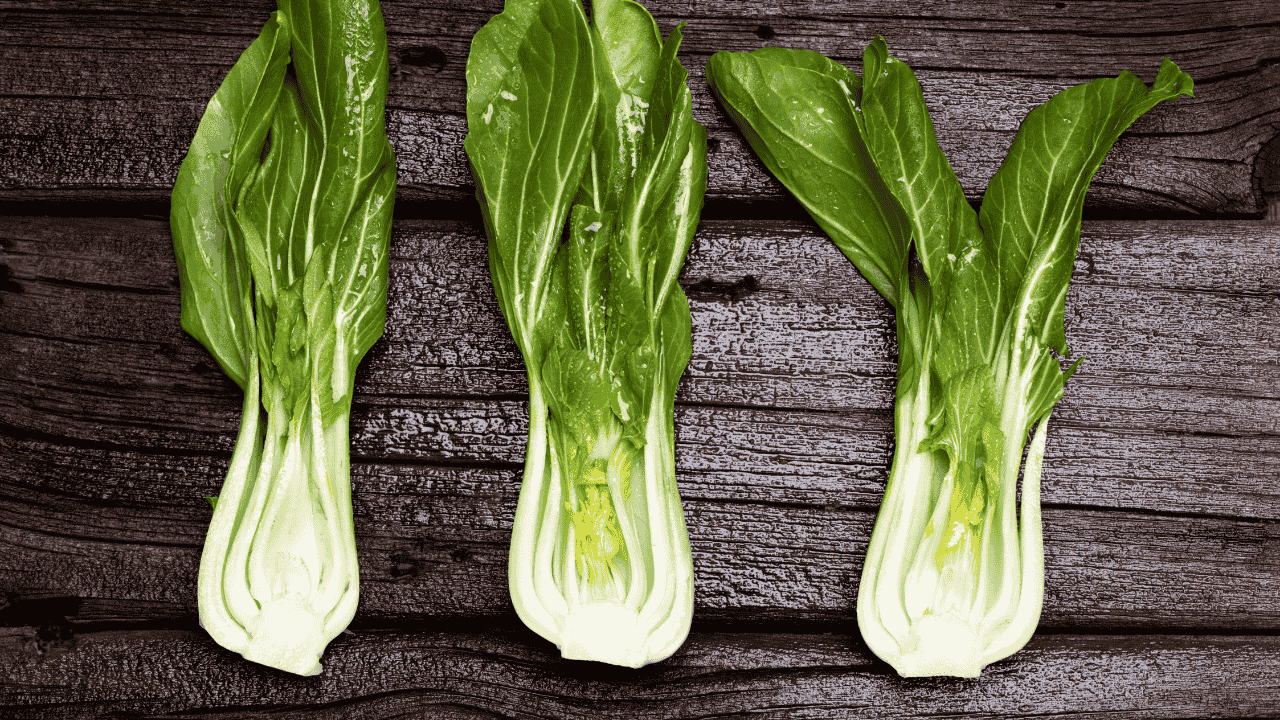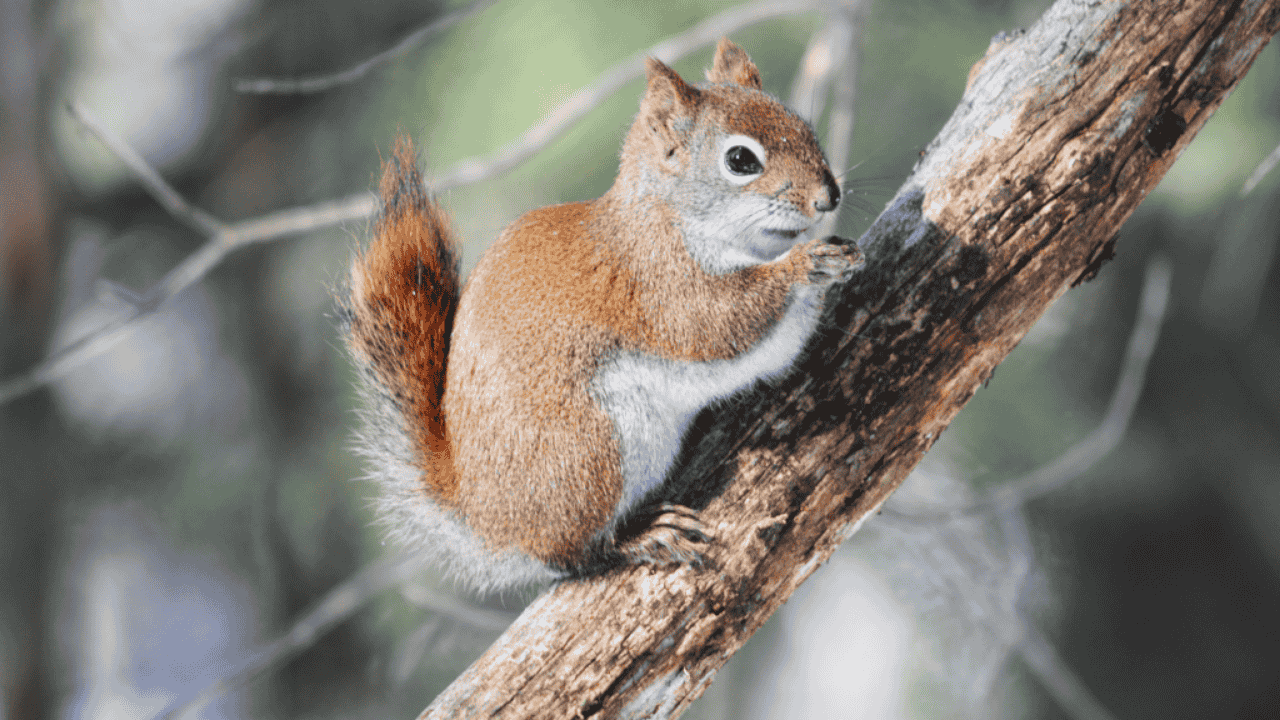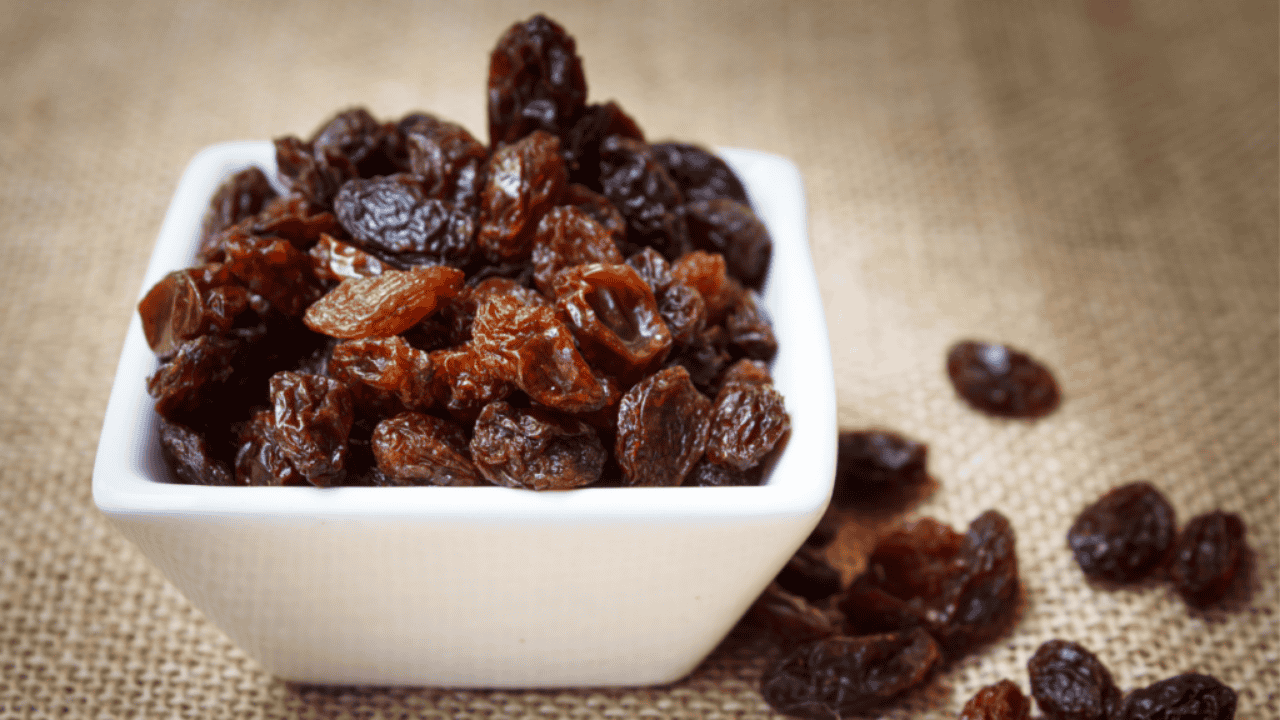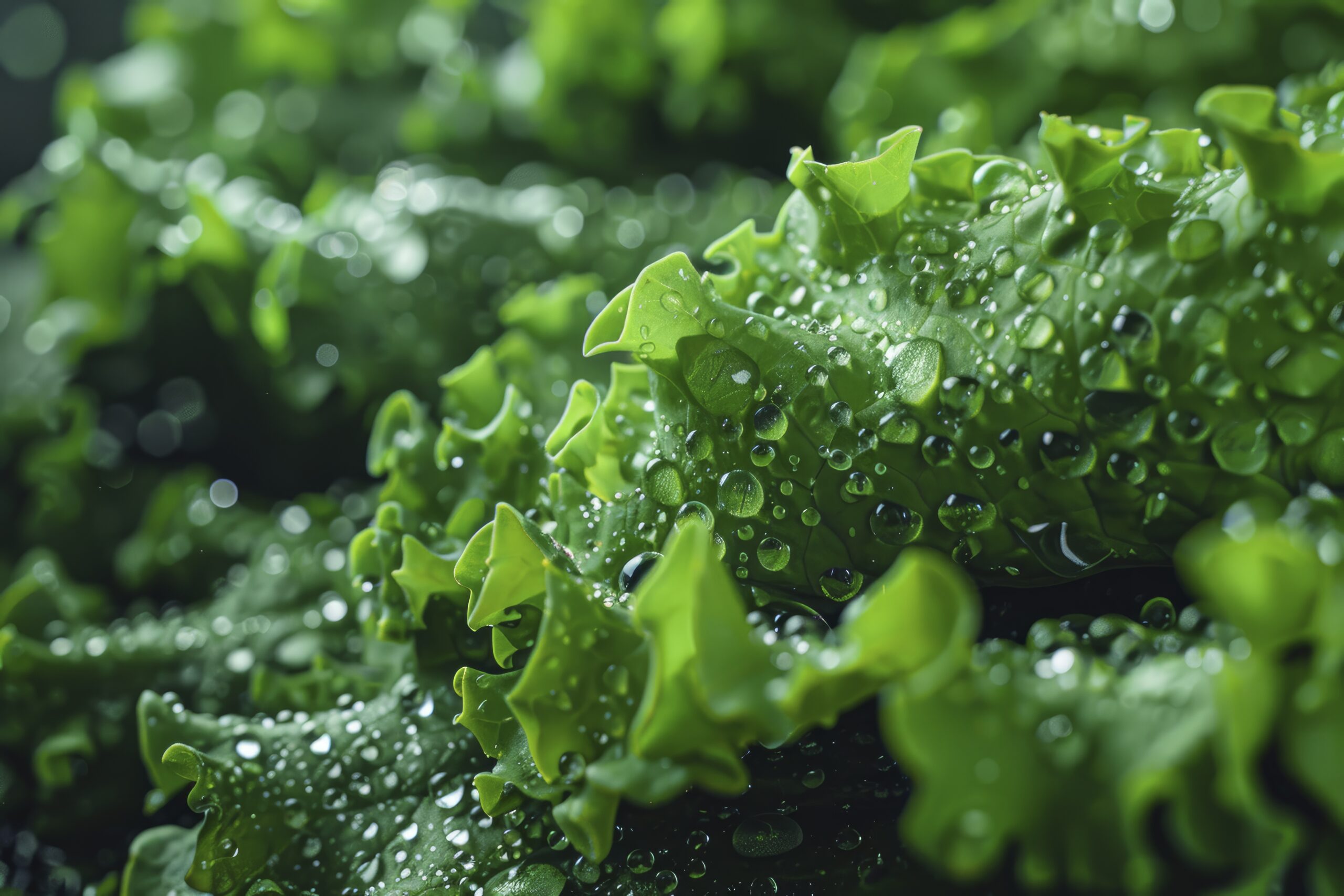
Can rabbits eat pears?
Yes, rabbits are allowed to take natural fruits like pears but in a very limited quantity of 1-2 teaspoons per 2 pounds of the rabbit ‘s body weight. They should avoid taking them in large amounts since they are viscous and contain so much sugar. Everyday offer him pears or any other fruits is dangerous to his health, thus you should not offer him fruits. The ideal is 3, 4 times a week or even less if you feed pellets or vegetables.
They like fruits because they are sweet and as is widely known rabbits are big fans of the sweet pseudo genetic. Eggs are also present in nature but people are not consuming it on a daily basis in the form of fruits. Indeed, in the wild that is a very difficult thing to do.
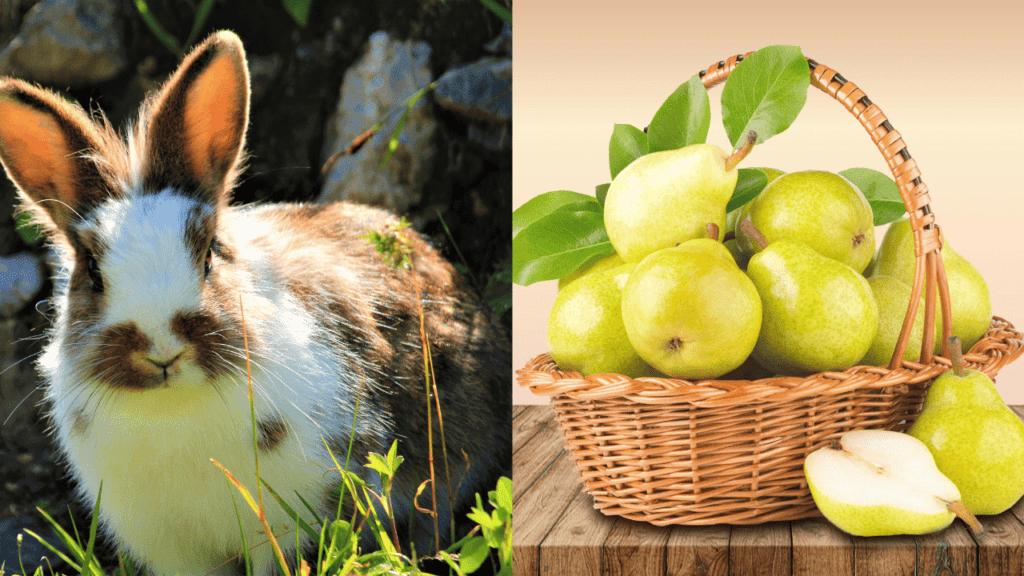
An apple daily (for this situation a pear daily) doesn’t fend the specialist off with regards to hares. As a matter of fact, it’s the inverse. Taking care of your hare multiple little bits of pear tissue each day might prompt weight gain, loose bowels, GI balance, or bladder issues.
Pellet issue when feeding pears or other fruits
When you’re taking care of treats try not to take care of pellets. They are a lot for your bunny. Likewise, ensure you feed your rabbit just high fiber pellets.
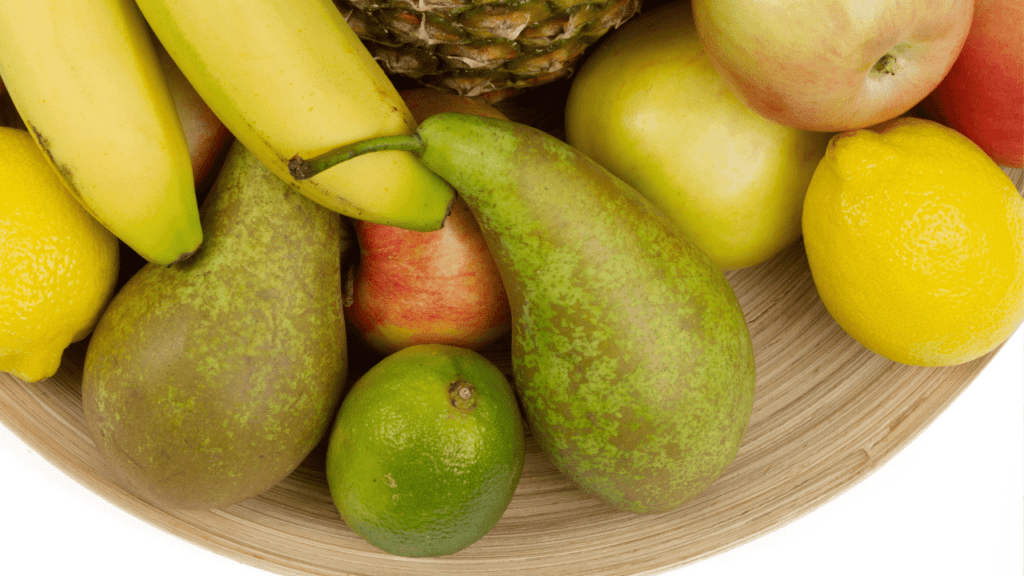
Feeding vegetables vs feeding fruits
Vegetables are superior to natural products since they are more nutritious and they have less sugar than organic products. Feed a couple of new vegetables too while taking care of natural products.
Let’s talk about pear skin, twigs, and seeds, or about cooked or dried pears? Are they all safe for rabbits?
FOR MORE INFORMATION about Rabbit’s
Related:Can Rabbits Eat Kale?
1. Can rabbits eat pear skins?
Hares can eat pear skins, as they can do with apples or melons. Continuously make sure to wash the skin, regardless of whether you utilize natural organic products as it were. Eliminate the skins on the off chance that you are don’t know about the pesticides.
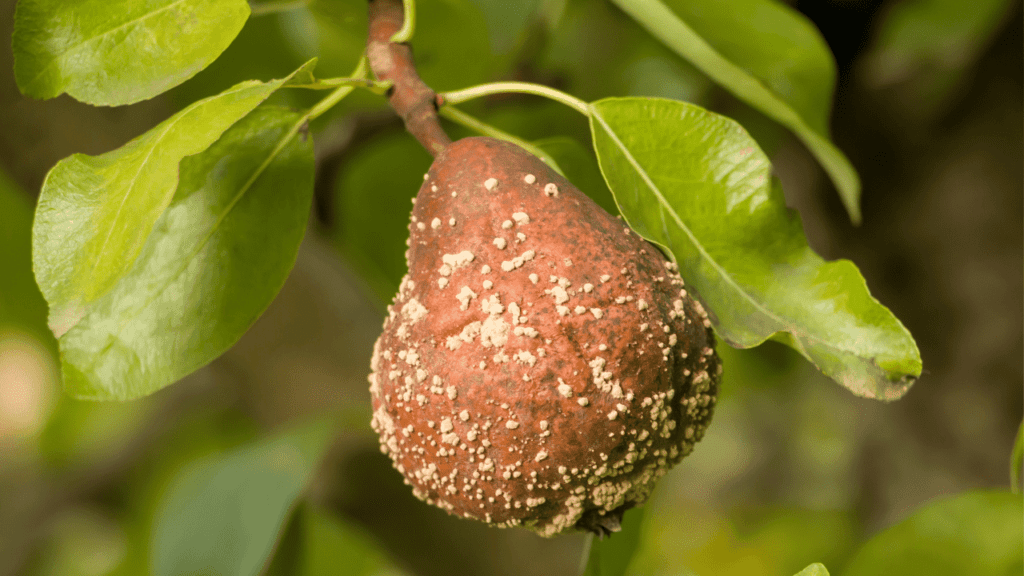
Could hares eat pear twigs?
Can rabbits eat leaves and branches from pear trees? Yes, they can. However, avoid using wood and leaves from trees that produce fruits with large seeds, such as peach, apricot, plum, and cherry, unless the wood is completely dry. Make sure to also remove any sap. On the other hand, wood from trees that produce fruits with many small seeds, like apple and pear, is safe for rabbits to eat, even when it’s fresh.
Are pear seeds terrible for hares?
Pear fruits are fine, but their seeds have cyanide, which is also found in apple seeds. It’s important not to let pets eat the seeds or stems. If it happens just once, don’t worry too much! It’s the repeated habit that’s harmful, not a single incident.
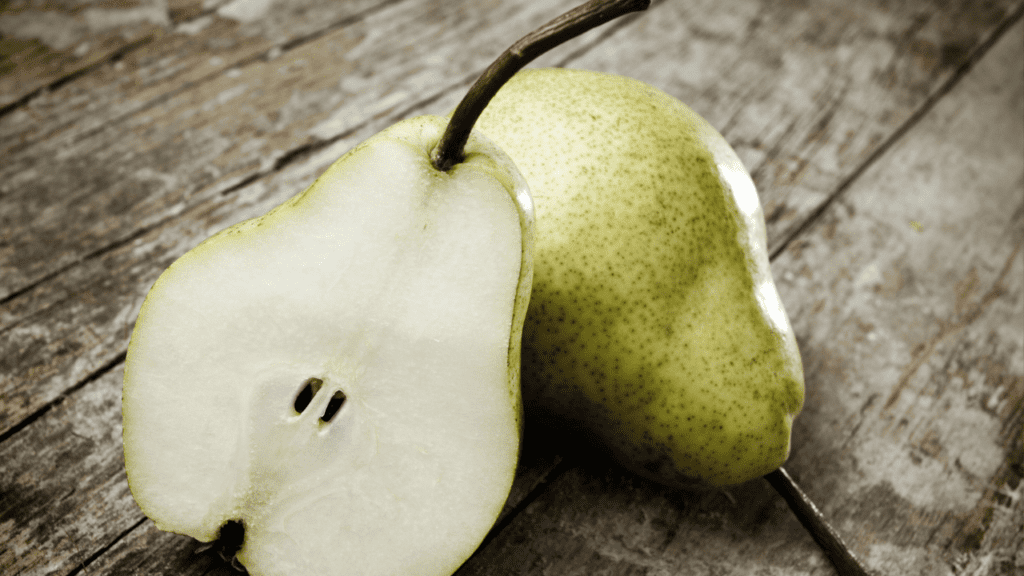
Are cooked pears great for hares?
Cooked fruits aren’t good for rabbits. They have more sugar, which is harmful to them. Plus, cooking removes the fiber from the fruits.
Could bunnies eat dried pears/natural products?
If you’re thinking about giving your rabbit some dried fruit, be very careful with how much you give. Just two small dried raisins (or an equal amount of other dried fruits) should be plenty for your small rabbit. Dried fruits have about three times as much sugar as fresh fruit. Fresh fruit is healthier and rabbits usually like it more.
Motivations to take care of new organic products as treats
A rabbit’s usual food, which includes hay and a small amount of pellets or vegetables, might seem plain, but your rabbit can thrive on it. However, there are valid reasons to mix in some variety to your rabbit’s meals. Just keep in mind that if you notice any changes in your rabbit’s behavior, you can always switch back to the basic diet.

• Different types of food can satisfy their nutritional requirements, but don’t overfeed them. Always stick to small servings, even if it feels like they’re getting very little. Rabbits are small creatures and they don’t require as much food as we do.
• Watch him getting energized while pausing or taking care of their treats. It discharges cheerful chemicals.
• A great learning tool to help him pick up new things.
• A great bonding activity.
• Fruits are beneficial, but leafy greens are even more so.
• Fresh fruits are a better choice than snacks that have been processed.
• Use organic products as a method for deciding wellbeing status.
• To make treat time significantly seriously energizing, you can likewise offer a little piece of natural product blended in with his number one vegetable, or kind of roughage.
• To make treat time significantly seriously energizing, you can likewise offer a little piece of natural product blended in with his number one vegetable, or kind of roughage.
• To encourage him to eat hay, blend it with small pieces of fruits and vegetables.
• In addition to fruits, you might want to think about using herbs as a snack. Mint is an excellent option.
Feeding fruits is a good thing, but your duty is also to stop your rabbit from eating too much fruit.
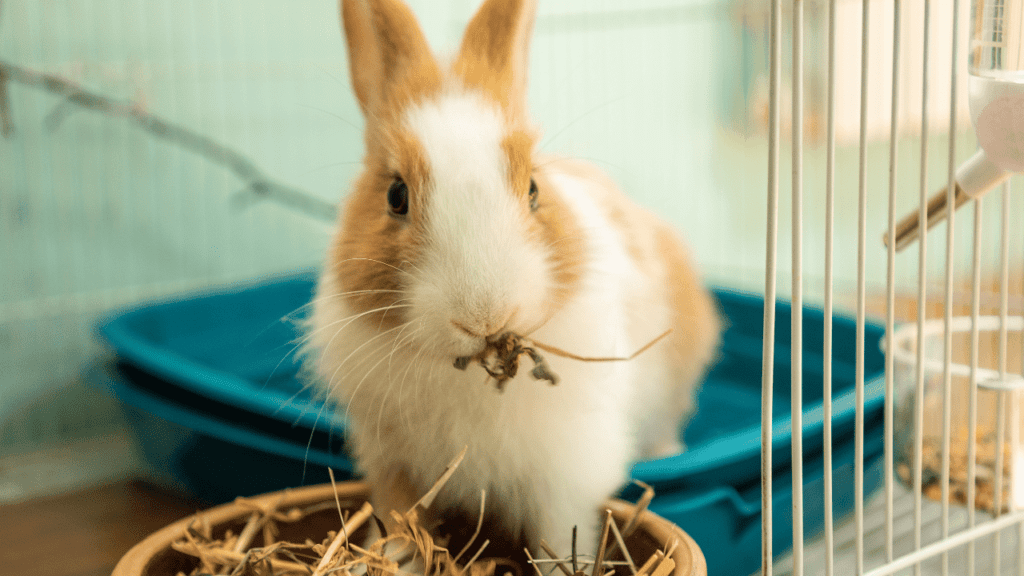
Not really for regular taking care of!
Because pears are very sweet, rabbits prefer them over hay or vegetables. If you give your rabbit fruits too often, it may begin to reject other foods. To prevent this, try giving them treats only 2 or 3 times a week at most.
Present them gradually!
First, help your rabbit get used to its regular food. Introduce only one kind of fruit at a time. Your rabbit’s stomach is delicate, and giving it too many new foods at once can harm it. The same goes for vegetables. Allow your rabbit time to adjust. Wait 24 hours to see how it responds.
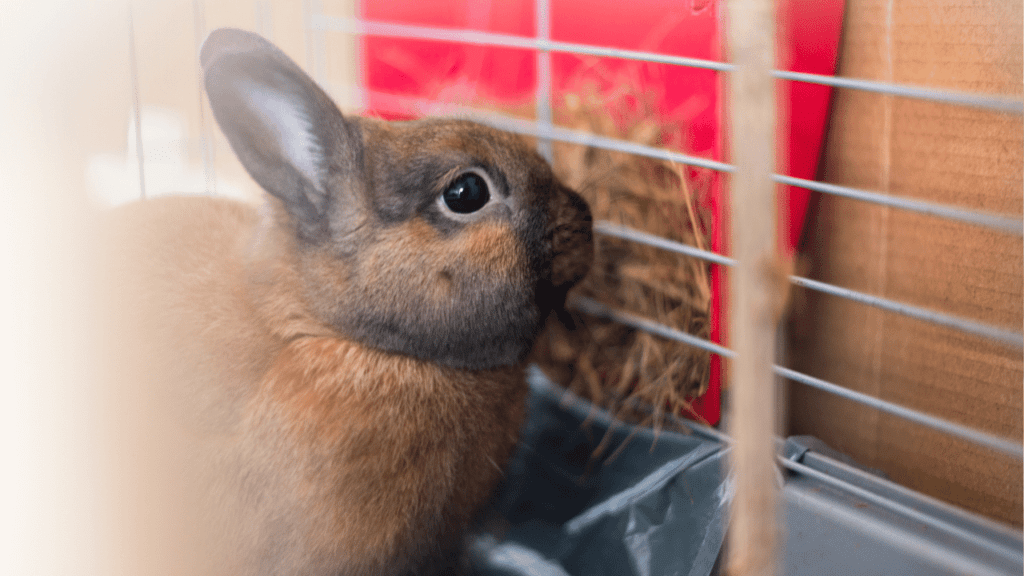
If your rabbit has loose stools or a stomachache, stop giving it treats and only provide hay and some leafy greens. If it’s okay, you can start feeding it treats again in about a week. Make sure to regularly change the fruits you give it.
What fruit can rabbits eat?
You can safely offer your rabbit the following fruits:
Apples and pears (without stems or seeds because they are harmful), bananas and grapes (in small amounts because they are very sweet), oranges (including the peel), melons, mango, papaya, pineapple (without the skin). Berries like blackberries, blueberries, raspberries, and strawberries are good. Cherries, peaches, or plums should only include the fruit part. The leaves, wood, or pits from these trees have cyanide and are very harmful. Always stay away from them.

A good fruit for rabbits is pineapple. It’s recommended for getting rid or preventing hairball formation.
Limit giving grapes and bananas to your rabbit as occasional snacks. These fruits have more sugar than other fruits and can harm your rabbit’s digestive system if given too much. If you’ve given a big serving of fruit, skip giving any for at least four days.
So, can bunnies eat pears?
Certainly, but remember to feed pears to your rabbit in small amounts. Give him only a few slices, about the size of two grapes. Make sure he always has water in his bowl and hay in his hay rack close to his litter box. He enjoys eating hay while using the litter box. Keep these tips in mind, and your rabbit will enjoy a happy and healthy life.


